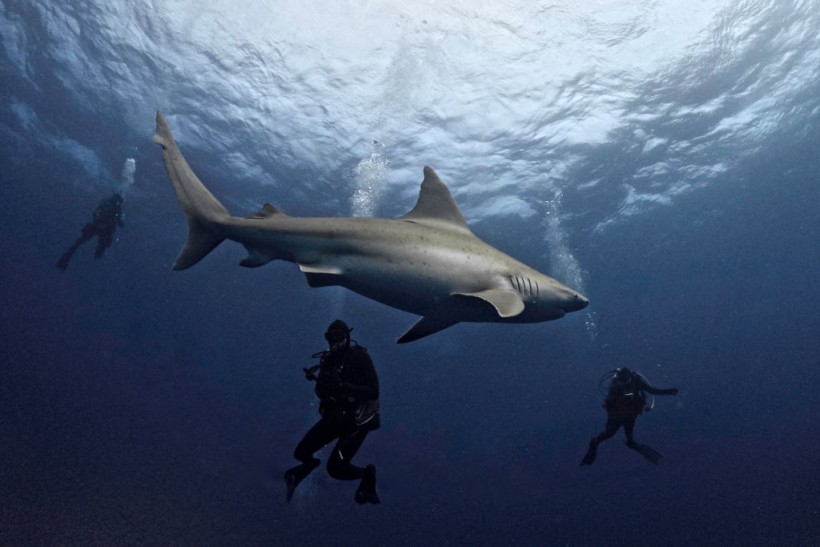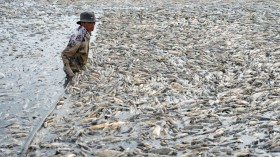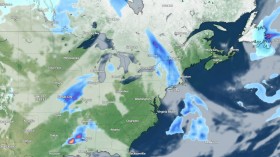A recent study suggests that a climate-disrupted ocean is forcing sharks, rays, and other species to flee ever-hotter waters in the tropics, only to be killed by increasingly strong upwells of cold water from the deep.
According to a study published in Nature Climate Change, climate change is contributing to an increase in the frequency of extreme cold occurrences across the Earth's oceans.
What Is Upwelling?

(Photo : Getty Images/Jesus Olarte)
Upwelling is an ocean phenomenon that occurs when colder deep water is forced to the surface after warmer water is blown away by winds.
As the National Ocean Service points out, upwelling is not wholly bad because the rising of nutrient-dense water from the sea floor can help fish populations thrive. However, excessive upwelling can cause "bait and switch" situations in which fish and marine mammals travel to warmer seas to escape the cold, only to face much colder temperatures.
Scientists focused on the big die-off event in 2021, which they were able to track with extraordinary precision since one of the impacted creatures that survived was a satellite-tagged bull shark.
They discovered that it had been trapped in water that was more than 10 degrees below the temperature that such tropical species were accustomed to.
The research describes how the shark modified its behavior in order to avoid cold locations. It swam far closer to the surface than usual and departed from its normal migration path.
Many of the injured sea species' carcasses showed up on South African shores, including the pup of a large manta ray that had been aborted by its terrified mother.
"It was eerie to see so many species washed up dead. You'd think they would have swum away but they got squeezed. They couldn't escape,"said Ryan Daly, one of the authors of the paper.
Read Also: Coastal Upwelling Changes Affect Marine Animal Growth, Reproduction
Upwelling Trend
To better understand the broader trends driving the die-off, the scientists tagged other sharks and used 41 years of sea surface temperature data and 33 years of wind records to investigate the frequency and intensity of cold "killer events" inshore of the Indian Ocean's Agulhas current and the east Australian current over the last 30 years.
They discovered that cold upwelling occurrences increased in frequency and severity in these places between 1981 and 2022. Other species killed in such incidents include whale sharks, convict surgeonfish, bigeye trevallies, and common blacktip sharks.
Tagged bull sharks appeared to adjust their behavior in order to avoid rapid temperature changes, swimming closer to the surface, sheltering in bays and estuaries, and only traveling to the extent of their poleward distribution during warm seasons.
The marine biologists collaborated with oceanographers to analyze upwelling trends and predict what might happen in the future as climate disruption worsens and extreme cold upwellings grow more common, as do periods of excessive surface heat.
Scientists stated that the findings indicated the need for a new strategy for marine conservation that incorporates knowledge of the increasingly complicated ways in which climate instability affects marine organisms.
"We need to think about expanding conservation areas and prioritizing different species. We need to think outside the box," Daly added.
Related Article: Ocean Temperature Seen As Main Driver Of Marine Heat Wave In 2021, Study Finds
© 2024 NatureWorldNews.com All rights reserved. Do not reproduce without permission.





